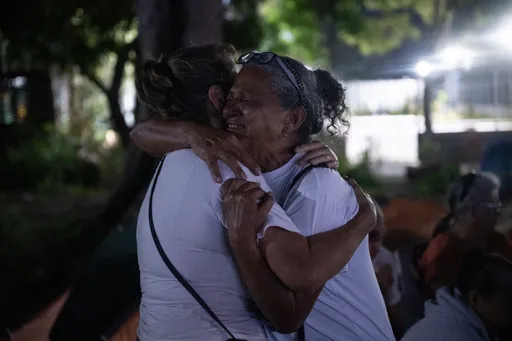Nelly Cheboi was steeled for life growing up in extreme poverty – she once recalled the nights of “stomach-churning hunger” – in a rural household in Kenya’s Baringo County.
It also gave her a clear idea of what she wanted to do with her life. So she put her head down, studied hard in school, received a scholarship to attend university in the US, and lifted her family out of poverty.
Many years later, Cheboi, 29, quit a well-paying job in the US to launch TechLit Africa, a nonprofit which recycles old computers and IT tech, establishes computer labs in schools across Kenya, and teaches youngsters the skills they need to confidently face the digital world.
In December 2022, Cheboi was named CNN’s Hero of the Year, catapulting her company and its cause to international acclaim.
“I grew up in rural Kenya in poverty, going to bed hungry or school barefoot, and I became motivated to find sustainable solutions towards poverty,” Cheboi tells TRT World.
“I mean, these kids deserve a better life than what I experienced. That was enough motivation to start TechLit”, short for technology literate.
The soft-spoken tech guru realised that if she was to kick poverty from her village, she had to start with its youth.
“Most people don’t know how to send an email, but it’s not their fault. So, what we decided to do instead is work with kids. How can we incorporate this as part of their growing up and as part of schooling? How can we teach them all these skills? It became easier to go into existing schools and have these classes as part of their day-to-day activities,” says Cheboi.
Digital divide
As Kenya strives to become a technology leader in East Africa, the digital divide has grown in rural communities. Dedicated spaces for technology labs in Kenya are rare in rural areas.
The World Bank’s Kenya Economic Update released in 2019 notes that only 44 percent of the urban population have access to the internet. In comparison, the figure for rural areas is an abysmal 17 percent.
With Cheboi’s programme, students learn technology in fun and engaging ways while expressing their creativity, as the steady installation of TechLit Labs in schools facilitates positive outcomes in poverty eradication.
The first effect is that information technology has increased awareness and literacy levels in communities starting with Zawadi Primary School – one of the schools that TechLit labs partnered with.
Seven-year-old Sammy Ruto is one of the programme’s beneficiaries. His facial expressions show how happy he was to share his aspirations and what he had learned.
“We have been taught so many things that I didn’t know, like NASA. How to build a website, and more. It’s fun. I want to be an astronaut when I grow up,” Ruto tells TRT World.
For another student, Mary Chepkemoi, TechLit introduced her to a new world. She gets to read the history of women she considers her icons, like US Former First Lady Michelle Obama and Kenya’s renowned environmentalist, the late Wangari Maathai.
“I know how to use a computer. Every day I learn something new, it can be the initiatives they are involved in, such as empowering girls in Africa or the journey to be where they are. I love them and would like to be like them when I grow up,” says Chepkemoi.
More to come
Experiences like these from her students are what motivate Cheboi to continue creating more opportunities for children in rural areas.
“I see myself in these kids, but with more resources. These children are like any other kids living in privileged cities. They deserve to learn how to make money online, create a brand and make something out of their lives,” says Cheboi.
Cheboi’s initiative has seen over 4,000 students benefit from her programme, and 10 schools in Baringo County have well-equipped computer labs.
Government officials at both the local and national levels recognise Cheboi’s efforts and the positive impact of technology in helping reduce poverty in the community.
Maureen Karelo, Baringo County Executive Committee of ICT, threw her weight behind Cheboi’s mission.
“Most of these students feel left out because of the lack of resources. These kids are normally neglected by the government. So we tend to rely on non-governmental organisations such as TechLit to bridge the gap. I am glad they are helping children. We hope to see the next Elon Musk come from Baringo County.”
Ezekiel Machogu, Kenya’s Education Cabinet Secretary, says: “The outcomes of gaining digital skills for children prepare them for the world of work. [It] helps our young people to be inspired by the potential of technology and feel prepared to face the digital future with skills and tools to succeed.”
By the end of 2023, Cheboi hopes to expand the number of TechLit labs in Kenya to 100.
“However, more needs to be done to ensure digital skills and learning opportunities are available in every classroom and accessible to every student, whether online or from their school. Only then can a generation emerge into adulthood with tools and the mindset they need,” Cheboi notes.
“Empowering and ‘fixing poverty’ in my community is top of the agenda. That is what I want to be remembered for.”























